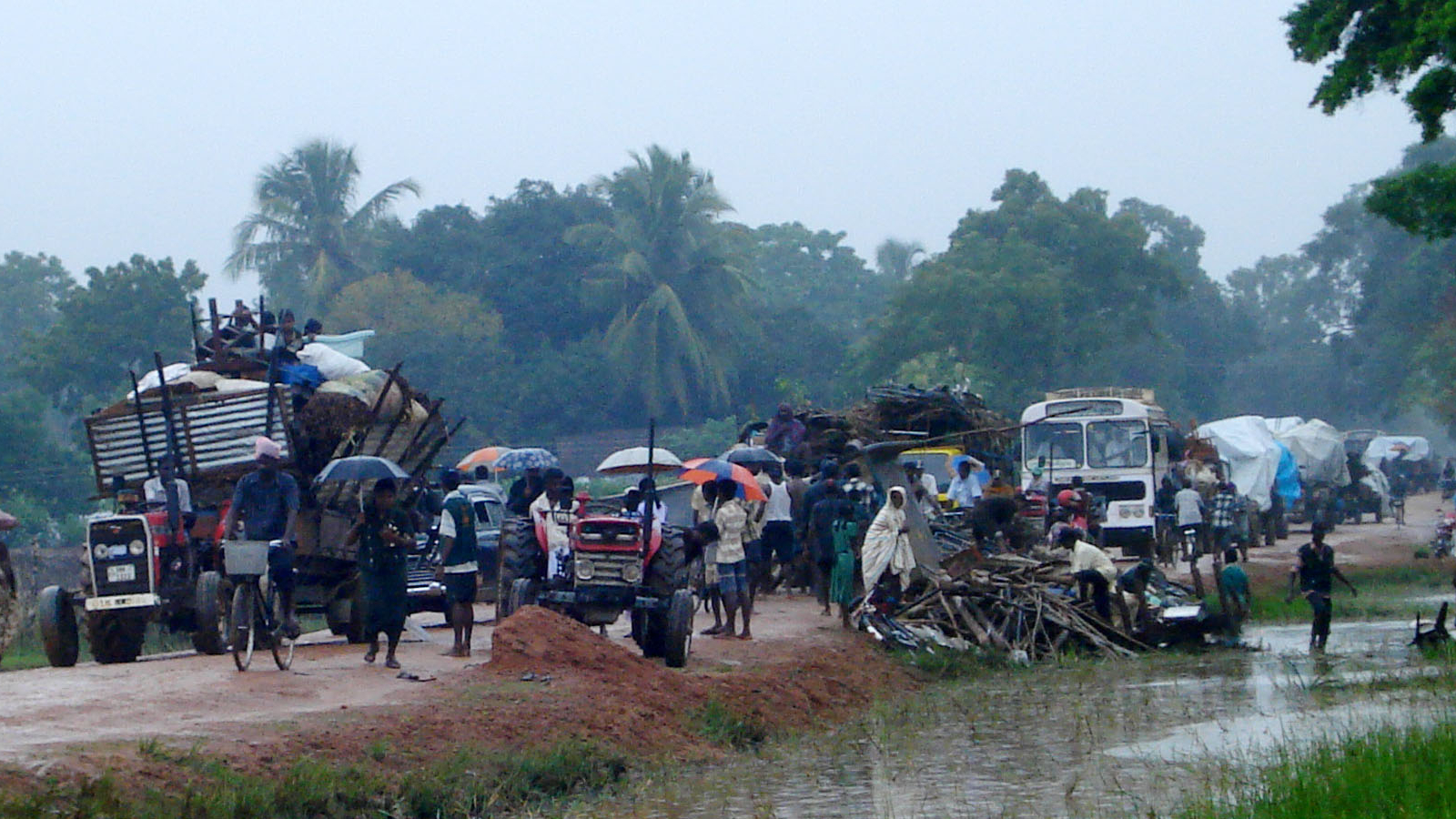A session of the United Nations Human Rights Council is ongoing in Geneva. Michelle Bachelet, the UN High Commissioner for Human Rights shared a report that raises concerns about the situation of human rights in Sri Lanka, particularly those of the Tamil and Muslim minority populations.
In February last year, Sri Lanka withdrew from its commitments at the UNHRC claiming that the newly appointed government of president Gotabaya Rajapaksa would not carry forward the resolutions passed by the previous governments.
Sri Lanka’s foreign minister Dinesh Gunawardena, objected to a proposed resolution in the council expressing deep concerns over deteriorating human rights situation, calling it a “political move” and a part of an “unprecedented propaganda campaign.” The resolution proposes scrutiny of the human rights violation in the country and for accountability of past violations as well.
The draft resolution is proposed by the UK, Canada, Germany and three other members of the 47-member Council. The vote on the resolution is likely to take place in March.
There have been various calls from within Sri Lanka for the United Nations to take cognizance of the human rights violations taking place in the country and to hold the government accountable for the crimes committed against the country’s minority Tamil population.
UN report on human rights violation in Sri Lanka
Successive governments in Sri Lanka have failed to pursue the process of justice for the victims of the civil war in the country, said Bachelet on Wednesday, February 24, while presenting her report before the UN Human Rights Council.
Bachelet said that “nearly 12 years after the end of the armed conflict, domestic initiatives had repeatedly failed to ensure justice for the victims and promote reconciliation.” She said that just like its predecessors, the current government too has failed to “pursue genuine accountability processes.”
Bachelet argued that the impact of the failure of the governments to provide justice has had a devastating impact on the victims and survivors of the war in the country. She also highlighted that successive governments in the country have taken measures to curb freedom of the press and the space of civil society. She pointed out that autonomy of key institutions, including the judiciary, has been eroded and growing militarization of some of the key civilian functions has “encroached democratic governance.”
Highlighting the growing discrimination and persecution of minorities in Sri Lanka, Bachelet pointed out that forced cremation of COVID-19 victims has caused further pain and distress among Muslims in the country. Muslims constitute around 10% of Sri Lanka’s total population. Tamils, around 11%, are the majority ethnic group in the country’s north-east.
Bachelet also called for an International Criminal Court investigation into the war and international sanctions against some of the military officials accused of war crimes.
Sri Lanka’s history of human rights violations
Tens of thousands of Tamils, including civilians, were killed by the Sri Lankan government forces during the 26-year-long conflict, with violence against Tamils peaking towards the end of the civil war in 2009. The UN Office of the High Commissioner for Human Rights has noted that the Sri Lankan forces indulged in “unlawful killings, enforced disappearances and gender-based violence en masse against Tamils.”
The rollback of the commitments Sri Lanka made at the UNHRC in 2020 invited widespread condemnation by human rights groups while the Sri Lankan government maintained that “the withdrawal” will pave the way for a “domestic accountability and reconciliation process.”
On January 22, Sri Lankan authorities appointed a three-member panel headed by supreme court judge AHMD Nawaz to “investigate and inquire into and report on findings of preceding commissions or committees on alleged human rights violations, serious violations of International Humanitarian Law (IHL) and other such offenses in Sri Lanka”.
The panel has been “authorized and empowered to conduct or cause the conduct of necessary investigations and inquiries and transmit Interim Reports where it is necessary, and the final Report within six months.”
However, as per Thyagi Ruwanpathirana, a rights defender working with Amnesty International, Sri Lanka has a long history of failed domestic accountability mechanisms. “The government’s successive failures have bitterly disappointed victims of human rights abuses and violations, many of whom have waited years for an outcome that has failed to materialize.”
The human rights situation in Sri Lanka has in fact deteriorated under Rajapaksa’s rule. In March 2020, his government pardoned the term awarded to war criminal Sunil Ratayake who was convicted of killing at least eight Tamil civilians including two minors. Such moves have increased the insecurity felt by minority groups such as Tamils and Muslims.
According to activist Savitri Hensmen, minorities remain insecure “with increasing militarization, withdrawal from past commitments to ensure accountability for abuses during and after the war and harassment and humiliation of ethnic, religious, sexual and gender minorities. Alongside ordinary Sinhalese people, Tamils and Muslims have suffered the effects of the pandemic and economic problems but have been further victimised.” The appointment of the panel is “widely seen as an attempt to stall critics without holding out hope of real change,” claims Hensman.
Meanwhile, Ahimsa Wickrematunge, daughter of senior journalist Lasantha Wickrematunge who was allegedly assassinated by a military-linked hit squad in 2009, also filed a complaint at the UNHRC on January 8. Wickrematunge was believed to have been killed for criticizing Gotabaya Rajapaksa (then the defense minister) in an article in the Sunday Leader which highlighted a corruption scandal in the purchase of fighter planes.
The 26-year-long civil war in Sri Lanka, mostly limited to the Tamil majority regions in the north and east of the country, resulted in the death of more than 100,000 people, almost half of which were civilians.





